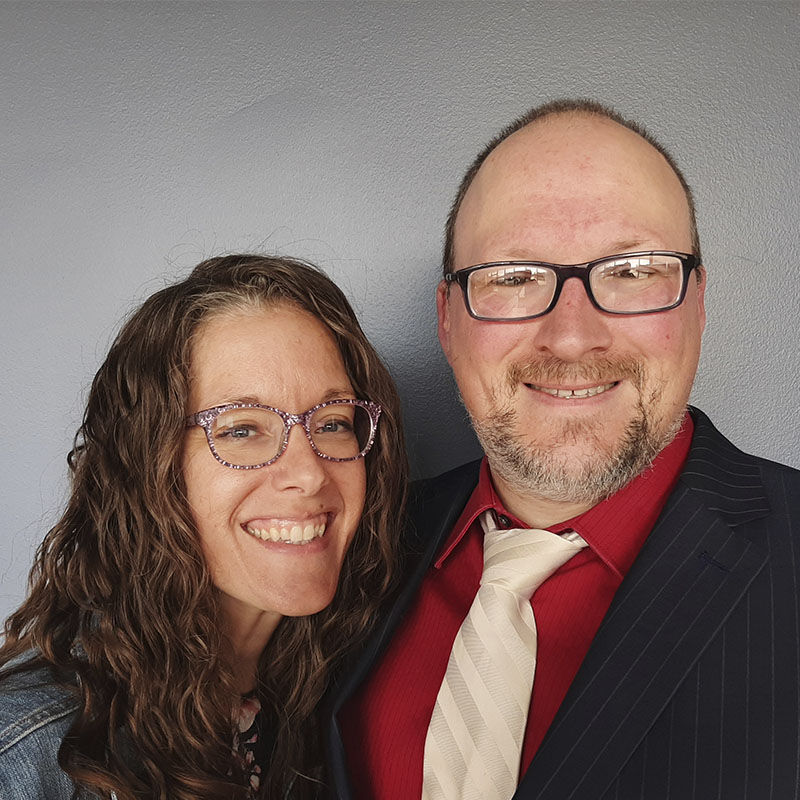When we go through the end of a relationship, it can feel as if our world is falling down around us. How can we deal with breakups?

The music and movie industries have made billions upon billions of dollars pulling our heartstrings regarding fictional, or all-too-real, stories of breakups.
We can probably remember a movie where two people are screaming at each other and throwing vases. Or maybe a country song where the girlfriend took the tractor, the dog and the fishing pole during the breakup. Or how about the movies featuring two people looking back and pining for the “one that got away” years before.
Love at first sight and the magical feeling of being “in love” are pushed on us at an early age. Look at all the children’s movies with a romantic love theme—Cinderella, Snow White and Sleeping Beauty, to name just a few. Fairy-tale romances instill in us the idea that there is only one right person for us and give the impression that it doesn’t take work to build a relationship because you’re “meant to be” together!
We all want the movie ideal of having that perfect special someone to build a life with, to have a family with, to grow old with. There is nothing wrong with wanting to get married and have a family, and when things don’t work out that way, it hurts. Terribly. It makes you wonder things like:
- “What is wrong with me?”
- “Why am I not good enough for the person I love?”
- “If this person doesn’t love me, who will?”
But, instead of turning to Hollywood and the music industry when we have a painful breakup, Christians can look to the God of all comfort (2 Corinthians 1:3) for His wisdom in how to move forward (James 1:5) and His tender mercies to help us in our darkest moments (Psalm 145:9).
It is possible to move on with our lives after breakups, and the Bible can help.
Why are breakups so painful?
When a relationship ends, there is a reason it can be more traumatic than other transitions in our lives. That reason has to do with the powerful brain chemicals associated with bonding and human connection, such as serotonin, oxytocin, endorphins and dopamine.
This article is not designed for those facing the breakup of a marriage or a sexual relationship. In those situations, see our articles in the “Marriage” section, including “The Curse of Divorce,” “How to Save Your Marriage,” “Living Together Before Marriage” and “Why Sex Is Never Casual.”
But many of these powerful brain chemicals of bonding and connection are also involved (though at milder levels) in romantic relationships that have not moved into sexual activity. And that’s why breakups are so hard. Through these chemicals, our brains build memorable pathways of reassurance and connection with a certain significant other, so it is a huge shock to our system when those pathways close and then have to be abruptly changed.
Simply because the pathways are so well-formed, we can experience some aspects of this even when strong but nonromantic friendships fade away or end. Think of your friends in high school or college and how you miss the closeness and connection you used to have.
Describing our relationships in terms of “chemistry” may be much more literal than we think.
Amen Clinics puts it this way: “When we love someone, they come to live in the emotional or limbic center of our brains. They actually occupy nerve cell pathways and physically live in the neurons and synapses of the brain . . . Overactivity in the limbic system—the brain’s emotional centers—has been associated with depression and low serotonin levels, which is why we have trouble sleeping . . . and lose the joy we have for life. A deficit in endorphins, which modulate pain and pleasure pathways in the brain, also occurs, which may be responsible for the physical pain we feel during a breakup.”
Sometimes a breakup is amicable and is the result of both people realizing that things aren’t going to work out or that they are simply incompatible. Though rare, sometimes the two remain friends afterward.
But how do the rest of us in the real world deal with these abrupt, and often painful, splits in our lives?
Dealing with breakups
Here are five positive things we can do in dealing with the breakup of a relationship.
1. Avoid being swindled by the myth of soulmates.
An interesting mythology has been accepted as fact in much of the world. It’s the idea that we each have one and only one soulmate. In essence, it’s the idea that somehow our immortal soul was split in two before coming into our physical bodies, and somewhere out there is the other half of our soul.
This leads to the idea that if we break up with this other half of our soul, or if we try a relationship with someone who isn’t the other half of our soul, we will never be happy.
What a horrific lie!
First of all, belief in an immortal soul does not come from Christian origins, although most of Christianity has adopted it along with several other beliefs derived from ancient pagan religions. The belief in an immortal soul came from ancient Egypt, then Socrates, Aristotle and Plato popularized it. (To learn more about the false teaching about the immortal soul, see “Do Humans Have an Immortal Soul?”)
It is true that we can find people in our lives who seem like the perfect romantic match, and that we are much more compatible with others on just a platonic level. But the false idea that there is only one perfect match for us out there makes a breakup with our supposed perfect match—or a future relationship with anyone other than our supposed perfect match—that much harder and more painful to weather.
2. Do what you can to be a peacemaker after the breakup.
In the midst of a breakup, and especially after, focusing on the overall goal of being a peacemaker (Matthew 5:9) can make everything less horrible. If at least one person is trying to keep the peace during the breakup, there’s a much greater chance of having some semblance of peace.
In the midst of a breakup, it can be hard to trust that God knows what is best for us now and in the future. But it’s true.
The best-case scenario is that the two people involved can heal and somehow remain friends (or, at least, friendly), but many times this is not possible. Obviously, a friendly relationship wouldn’t continue after a breakup if, for example, there had been emotional, verbal or physical abuse. And there are many other reasons the parties wouldn’t continue as friends.
Even if completely cutting off any relationship or communication is necessary and even if being friends is just not going to work, we can still resolve to remain civil, do our best not to tear down our ex and make a sincere attempt to have a caring attitude after the breakup. And we can try to do anything else that makes for peace (Romans 14:19). We should try to exercise the personal character it takes to speak only positively about our ex to others.
Such efforts can curb the thoughts of bitterness, depression, contempt and vengeance that are likely to pop into our minds after a split.
3. Think about your thoughts and look outward.
We need to take the time needed to grieve the loss of the relationship. We should acknowledge our thoughts and be sure they are true, not based on our ever-changing feelings (including feelings of devastating heartbreak).
We should remember that we are a work in progress. As time goes on, we can endeavor to focus our thoughts on ways to serve others, which will naturally make us less likely to stay focused inward or get caught in a spiral of grief.
God’s Word tells us to look out for the interests of others (Philippians 2:3-4). Focusing on others can help us overcome the pain of a difficult breakup.
4. Move forward based on rational and realistic thinking, not just on what happened with your ex.
Counselors and psychotherapists try to drill into their clients’ heads that bringing baggage like self-doubt or lack of trust from an old relationship into the new life after the breakup is a recipe for unneeded disaster. Self-reflection about why and how a relationship ended badly is not a bad thing unless it leads us to irrational or untrue thoughts, such as “I’m unlovable,” “I’ll never find anybody else” or “Why are all guys/girls awful?”
We have to move forward, basing our lives on truth, not just our own perception of ourselves or others, which might be biased or false due to our previous relationships. Our personal perspective is important and valuable, so much so that it shapes our experiences in a variety of ways. But it is a mistake to think our subjective perspective is the only evidence we should use as a springboard to move forward.
We shouldn’t rush into another relationship, but it’s important to realize that the person we develop a relationship with in the future will not be a carbon copy of the person we had a breakup with. A breakup doesn’t automatically mean something is inherently and permanently wrong with us.
In moving forward after a breakup, it’s important that we not get stuck in looking at feelings as our only evidence for truth.
5. Trust God, even when things don’t go as planned.
God does not always give us what we want, the way we think we should have it.
In the midst of a breakup, it can be hard to trust that God knows what is best for us now and in the future. But it’s true. He can see the potential outcomes of friendships and relationships, and He knows which ones will help us, which ones will harm us and which ones will honestly not play that big a role in our lives altogether.
He may be protecting us from more life-altering heartache in the future, or He may simply be showing us something we need to learn along the way. He may be preparing us for a more wonderful relationship and future, as well as building spiritual character, understanding and empathy for others that we might not have been able to learn without this challenge.
Life goes on after a breakup
Breakups can be some of the most painful experiences we have in our lives, due to the powerful brain chemicals involved and the schisms that can develop in our relationships.
But life does go on after breakups, and the more we realize that breakups are just a sad and messy part of life—rather than worthy of consuming the majority of our thoughts and actions—the better we can move on when they do happen.
Don’t give up on dating and finding the right godly match. Realize that even though breaking off with a seemingly wonderful prospective mate is difficult, we can turn to God, seek to please Him and pray that the right match will come along at the right time.
As with every aspect of human life and relationships, the Bible is a source of hope, comfort and encouragement during and after breakups. Learn more in the articles in our sections on friendship, dating and encouragement.





